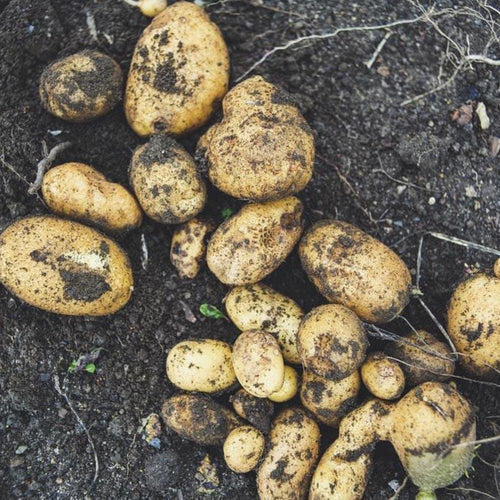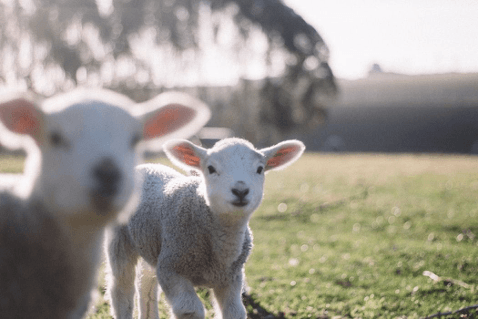As a company that really promotes sustainability and supporting the community, we thought it would be great to take a look at how we can be more green, and more resourceful when buying food.
One of the best ways of ensuring a lowered carbon footprint is to buy seasonal produce, grown and cultivated in the UK. Here are some of the reasons why buying local, and buying seasonal can not only reap benefits for the environment, but also for the individual:
Environment
British food travels far less from farm to shop than most imported foods, which means you're cutting out a big portion of the transportation journey and reducing energy and impact on the environment.
Nutritional Benefits
Local, seasonal foods tend to be fresher, tastier and full of nutrients. Eating the foods that are seasonal will give your body the elements that it needs at that particular time of the year. Unlike some meats from other countries, British meat tends not to have any growth-promoting hormones and is produced to some of the highest welfare standards in the world. You will also have the assurance of knowing what you are eating. Britain has some of the most robust food assurance and traceability systems in the world.
Supporting the Economy
Supporting the local economy is incredibly important. You’ll be able to do your part in supporting the farmer, those who work in food processing, the local shopkeeper and the pubs and restaurants selling the food. In recent years, there’s been a real push in supporting our farmers, and now since food transport is so easy, we need to think about the farming communities closer to home.
Variety
The variety of food that the UK produces is amazing, each season has something different and delicious to try, with a million different recipes for each one. From root vegetables to ripe delicious fruit, as a country we’re hardly lacking in diversity! If you’re looking for something new and different to try, we have compiled our favorite recipes in one place!

|
Spring
|
Summer
|
Autumn
|
Winter
|
|
Beef steaks
Sausages
Chicken
Spring lamb
Asparagus
Carrots
Cauliflower
Celeriac
Cucumber
Kale
Purple sprouting broccoli
Savoy cabbage
Sorrel
Spinach
Spring greens
Spring onions
Watercress
Gooseberries
Rhubarb
Crab
Haddock
John dory
Lobster
Mackerel
Monkfish
Prawns
Sea bass
Sea salmon
Trout
Turbot
|
Beef steaks
Burgers
Chicken
Ham
Lamb
Pork pies
Pork spare ribs
Saltmarsh lamb
Sausages
Venison
Beetroot
Broad beans
Carrots
Cauliflowers
Courgettes
Cucumber
Fennel
Fresh peas
Garlic
Green beans
Lettuce and salad leaves
New potatoes
Radishes
Runner beans
Sage
Salad onions
Squash
Tomatoes
Watercress
Blueberries
Currants
Elderflower berries
Greengages
Loganberries
Plums
Raspberries
Strawberries
Tayberries
Crab
Pilchards
Wild salmon
|
Chicken
Grouse
Ham
Heather-fed lamb
Pies
Pork
Roasts
Sausages
Venison
Field mushrooms
Lettuce
Marrow
Potatoes
Pumpkin
Rocket
Squashes
Sweetcorn
Watercress
Apples
Blackberries
Damsons
Elderberries
Pears
Plums
Sloes
Brill
Dabs
Dover sole
Flounders
Oysters
Skate
|
Casseroles
Chicken
Gammon
Goose
Partridge
Pheasant
Pies
Roasts
Sausages
Turkey
Venison
Wild duck
Bay leaves
Brussels sprouts
Cabbage
Carrots
Cauliflower
Celeriac
Curly kale
Fennel
Leeks
Parsnips
Potatoes
Red cabbage
Swede
Turnips
Apples
Pears
Quince
Grey mullet
Mussels
scallops
|










Leave a comment
This site is protected by hCaptcha and the hCaptcha Privacy Policy and Terms of Service apply.